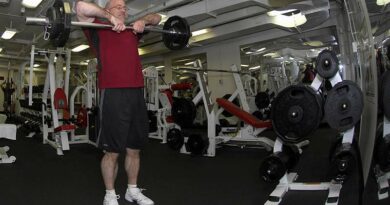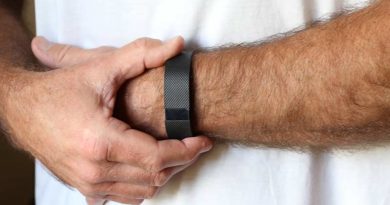Is aerobic exercise a waste of time?!
The headlines world-wide on 5th February 2009 were along the lines of: “MILLIONS of people who try to keep fit by jogging, cycling or going to the gym could be wasting their time, a study revealed today.”
The study was an international collaboration, led by the University of London and involving teams from 14 institutions from London to Ontario. The results were published in the Journal of Applied Physiology and they were that that aerobic exercise does not benefit everyone in equal measures, and its usefulness is determined by a person’s genes. According to the results, 20% of people do not receive any health benefits from aerobic exercise (my emphasis).
The work was based on the belief among researchers that one of the best predictors of health is a body’s ability to take in and use oxygen during aerobic exercise. Participants in the study were asked to undergo rigorous aerobic training, while researchers took muscle tissue samples before and after. The team then identified a set of about 30 genes that predicted the increase of oxygen their body consumed.
– By the end of the study 20% of participants saw their maximum oxygen increase by less than 5%. (Zoe comment – This led to the conclusion that 20% of people receive no benefit from aerobic exercise).
– About 30 per cent showed no increase in insulin sensitivity, meaning that the exercise did not reduce their risk of diabetes. (Zoe comment – This was a secondary finding and other findings were connected to the role of exercise in specific conditions.)
What can we take out of this study?
1) This is about aerobic exercise (aerobic means ‘with oxygen’), but I expect the same will apply for anaerobic (without oxygen) and ‘body sculpting’ exercise also. Not everyone can be a long distance runner and some people simply do build more muscle more easily than others. Some people try everything from tablets to protein shakes to change their shape and some get an active job and it happens without them even trying.
2) The link between body, exercise and genetics can be no surprise. We have known for some time (and it is extremely obvious looking at parents and children) that height and build have a genetic element. It is highly UNlikely that two very tall, ‘column-like’, parents will produce short, stocky off-spring. Sometimes the genetics can be found from the wider family. As a home grown example, Andy’s boys are very different in build – both tall, but one has a large (rugby) build like Andy himself and the other has a more wiry (runner) build – like Andy’s own brother.
3) We can try to change fitness and/or build, but this study is saying that for c. 20% of people it will have no effect. (That’s just a headline grabber, remember, and should be taken as an indicator, not a fact). However, the mere suggestion that exercise may not be delivering benefit for some people does mean that doctors should try to find other ways to replicate the benefits of exercise for this group of people. Maybe breathing exercises/yoga/pilates etc may help oxygen utilisation. Maybe lifestyle changes and more ‘me-time’ can give some of the de-stressing benefits of exercise that this group may be missing. One of the most important findings of this study is the understanding that exercise will not have equal benefit for all people and will have no benefit for some.
4) We can sometimes get too hung up on the intensity of exercise. I spent some time with a professor of Biochemistry this week, looking at how the body uses food for fuel in different circumstances. He (like me) was a big fan of low intensity regular exercise – not running marathons and cycling for long times up hill, but just walking or gardening or doing ‘normal’ activity. This can also nicely raise the heart rate and generate the positive benefits that can be gained from more vigorous exercise. It would have been interesting for the study to have compared not just high intensity aerobic exercise in 14 different institutions, but to have low intensity exercise groups as comparators throughout.
5) There are two final points to make about exercise i) you don’t need to do exercise to lose weight – exercise is recommended by the calorie theorists to create a calorie deficit. The body will just try to get you to eat to overcome the calorie deficit and people are invariably likely to eat more than they use up (Time Magazine: Why Exercise won’t make you thin. 17.8.2009) and ii) any exercise that you enjoy is always a great thing to do (dancing, walking the dog, yoga etc – if you enjoy it, do it. If the thought of going to the gym at 6am makes your heart sink, don’t do it!). Here are some good reasons to exercise: for your lean tissue maintenance; for your sense of well-being; for relaxation; for your joints; for your heart; for whole body health… Don’t ever think exercise is not a good thing to do – the only bad reason to exercise is because you are trying to force your body into calorie deficit. It will respond!




Thanks for the information. I’ll look into the M. Sisson website. I teach paramedic students at the local community college. As the new guy I was assigned the introduction to research class. It is very basic introduction class. However I am able to use your articles among others in many different discussions.
As we stress evidence based practice, the students are amazed at the lack of evidence for a lot of their ‘golden cow’ beliefs about nutrition and the way the body breaks down nutrients. They are astonished when they can not find even 1 credible study to back up their most basic ideas about carbohydrates and fats and protein. It’s a great way to teach them to follow the evidence and challenge what they thought they knew about nutrition.
Thanks again and keep up the great work. Some of us are listening and hopefully, slowly we can change the public knowledge.
Peter Wheeler
Hi,
I’m looking for advise on what to eat on my cycling rides. I ride between 20-60 miles for an average of 100 miles a week.
I ride because I enjoy it and I like to train for longer events-usually 100 mile rides.
So I usually ride according the heart zones. Most my rides qualify as low intensity aerobic exercise. Build an aerobic base and all that.
My normal food intake is based on your information & book, G. Taubes, R. Wolf, M. Lalonde. I can’t tell you how much better my health & fitness has been since discovering the tip of this iceberg of knowledge six months ago.
My question is what sort of food should I use for fuel on the rides?
And what, if any, post-ride food should I eat?
Thanks for all your help.
Peter Wheeler
Hi Peter – You may like to check out Mark Sisson if you haven’t come across him already. (http://www.marksdailyapple.com/a-metabolic-paradigm-shift-fat-carbs-human-body-metabolism/) My passion is obesity and helping overweight and obesity people to lose weight and gain health. Seems like you’re going in the right direction anyway with Taubes, Wolf and Lalonde. Fat is the most flexible macro nutrient – good for basal metabolic needs as well as energy/fuel. Carbs are OK for fuel and nothing else. I’ve chanced upon the odd study about how performance is affected by carb vs fat fuel. I leave this whole fueling for exercise arena to others – there are 1.5 billion overweight people to sort out first ;-)
Good luck – Zoe